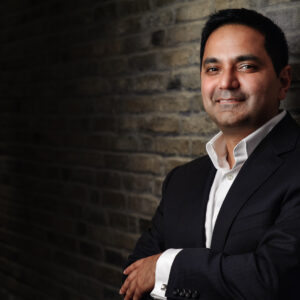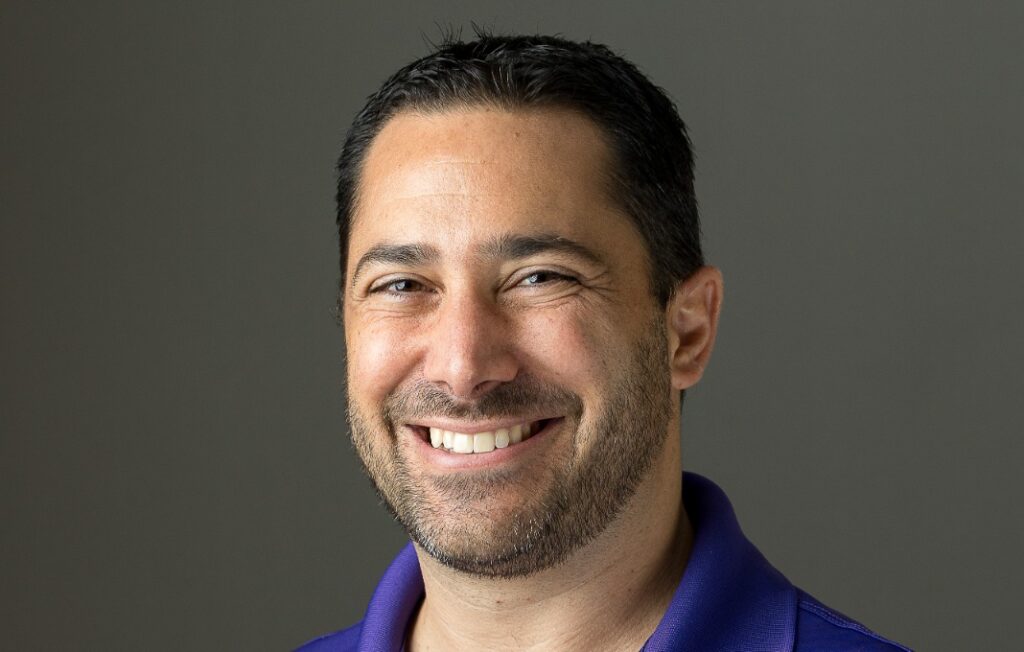As a double immigrant who worked his way through high school and university, I’m a big believer in the lifelong benefits of working on the front line of a service business, early in life.
One of my first jobs was front-line in the retail sector working at one of the biggest sports stores in Toronto. This job taught me how to work with diverse colleagues and adjust to the grueling demands of store managers trying to hit their numbers while handling dissatisfied customers wanting a better deal. After an initial test period, the store manager, a tough but fair French Canadian who loved the sports retail business, allocated his staff according to their talents, moving us around to the departments where we performed best. He also had an eye for talent, and he was particularly interested in quick learners who could conquer a complex department like ski equipment or hockey skates and outsell others.
Looking back, he managed an informal talent marketplace, in one of the world’s most diverse cities, extremely well. It was an incredibly diverse meritocracy: Jamaican kids rose from selling track shoes to managing winter sports and women moved from apparel to assistant manager roles overseeing budgets and purchasing.
Later, when I worked in large management consulting firms such as Deloitte, I learned that’s not the way most businesses work. In large organizations, people belong to camps or fiefdoms led by barons. The barons control the talent (“their team”) and seldom adopt new clan members. If the leader of your clan is ascending, you move up. If he or she is not, you don’t and at the extreme, could be eliminated. If there is a change in senior management or control, all bets are off: one clan wins and the other is either pushed aside or sent home.
Lesson Learned
In no business is this more prevalent than hospitality. Hotel and restaurant operators wave their hands and say, “hire this guy,” and their teams and human resources are often relegated to an administrative role. As an outsider, sometimes this can work in your favor, but once you get inside the organization it can be deadly. Having learned this lesson once, I became very careful and only joined the executive ranks of large hotel companies, such as Hilton and Caesars after lengthy periods as a management consultant to their senior teams.
Today, as a venture-backed founder of a leading talent marketplace company in hospitality, I am perplexed by the lack of meritocracy and transparency that exists in most organizations that manage hotels and restaurants. The barons, who are typically the hotel operators, at corporate, regional and property levels, still call the shots. When it comes to financial performance and customer satisfaction, they can be very data-centric and objective. But when it comes to talent, or “labor” as they continue to call it, they usually are more cavalier. After all, they are seldom held accountable for turnover, employee dissatisfaction and low levels of employee engagement or for that matter, seldom rewarded for developing talent that they lose to another part of the organization. I call this the “labor mindset”: labor is plentiful and can continue to be cycled and recycled. Everyone is replaceable and churn is a fact of hospitality life.
A New Reality
Unfortunately, labor as we know it is over. With layoffs of over 100 million people worldwide during the pandemic, the hotel industry put a big dent in the Hospitality Servant Leader Model. The freelance/free agent economy is here—another 5 million people becoming Uber drivers and others seeking hybrid positions where they don’t have to be on the property every day. We are now squarely in the era of elite talent where fewer, higher-quality workers can leverage technology to do more, leaving hotel operators scrambling to reset brand standards that can justify record high rates amidst pent-up demand.
To date, the hospitality industry appears to be a loser in the pandemic, due to a structural labor shift. A sense of desperation was seen in a recent statement by Accor Hotels’ CEO. “This weekend we’re having people interviewed with no resume, no prior job experience and they are hired within 24 hours,” Sebastien Bazin told Reuters.
We also hear stories of hotel GMs importing large numbers of front-line talent from nearby markets such as Jamaica, who are willing to work more days and longer hours, with lower turnover. “If it wasn’t for 50 loyal Jamaicans we hired, we couldn’t open up our resorts,” one luxury resort general manager in Florida told me.
Others have offered fresh perspectives with radical solutions. As Tyler Morse, CEO of MCR Hotels, one of the country’s largest hotel managers suggests, “There’s a simple solution to labor shortage: immigration reform. There are millions of people that want to be in America and a lot along the Southern borders. They want to come here tomorrow. And we could fill a lot of these 10 million positions in a heartbeat. We are killing ourselves from a wage rate perspective rather than opening the parking gate on the Southern border and giving people the American dream.”
He has a good point—internal and external migration is an essential part of the labor force in most advanced industrial economies. Having built a hotel brand in China from the ground up, I learned that 30 percent of China’s 20-million-person hotel workforce are migrant workers, especially in housekeeping, laundry, dishwashing and “heart of the house” positions. Much of the UK’s hotel workforce hails from Eastern and Central Europe.
But the labor shortage on the front line is not the only issue facing the hospitality industry. The greater, and perhaps more existential threat is the “general manager-ready” talent such as sales managers and directors who have jumped ship for hybrid remote industries where they are paid more, such as technology, pharmaceuticals and e-commerce. This has resulted in a double hit on the hospitality industry: a loss of talent and a commensurate decrease in gender diversity since two-thirds of hotel sales roles were filled by women rising in the ranks and becoming hotel GMs.
Never before has the hospitality industry faced such a large-scale and systemic HR crisis and more important, a talent crisis. The leisure and hospitality sector, which was hit hard by the pandemic, still has a lot of ground to make up. It took 31 months for the U.S. job market to fully recover. The hospitality industry has been adding jobs since the beginning of 2021, including 67,000 in June and July. However, jobs in the leisure and hospitality sector remain short-listed by 1.7 million or 8 percent from February 2020, after falling by almost 50 percent in the first two months of the pandemic.
Where Did the Labor Go?
So where did all the labor go? Mostly to more flexible, hourly positions including delivery, warehouse and logistics positions. Last week, Uber shared that it gained 5 million drivers globally, with an average hourly income of $30-$35, significantly higher than hotel hourly wages, which have grown 9.6 percent per year on average. There has been a mere 6.7 percent annualized wage growth in the retail sector and an even smaller 5.3 percent average hourly earnings growth across all professions.
While it is accurate that an increase in wages may be a wash against the backdrop of historic inflation, and declining productivity (and quality) of labor, the bigger issue facing company leaders is how the hospitality industry can win back talent. Customers are aware of hotel brands, owners and operators who are cutting corners. While automation of hotel check-in and reduction in amenities will help reduce labor requirements, the data suggests they are insufficient to recapture satisfaction scores, which are well below those required to achieve customer loyalty. In other words, hotel brands and independent hotels are ruining their reputations with high rates, lack of transparency and inadequate or poor service.
The good news is that hospitality operators have the power to create change. If this paradigm shift in the labor market implies that younger generations value flexibility and freedom more than career opportunities, there are three things the industry can do about it before it’s too late:
1. Stop relying on job boards. Instead, build databases and employee loyalty programs that market to talent directly.
Job boards are in the business of advertising and selling candidate and employer data. Furthermore, they don’t work. Research suggests that they fill 1 percent of positions and compromise an employer’s confidentiality. They also send a signal to competitors and the marketplace that a company is desperate for talent, or worse.
We also found legacy HR tech and lack of tech expertise in HR is a big part of the problem. The paradox is that the modernization of HR processes in the hospitality industry is usually addressed on a leftover basis or as part of merger integration. More than 90 percent of hotel operators with more than 10 properties have implemented a Recruiting Management or Marketing System (RMS) that compliments their Applicant Tracking Systems (ATS) and supports recruiters in marketing, sourcing and automating the recruiting process. However, lack of tech expertise in the HR function, even the newest solution (such as offered by SAP and other developers) appears not to be integrated into overall strategy or CIS, becoming “patchwork” supplementary to HR functions. As a result, thousands of viable or semi-qualified candidates are excluded from consideration.
It’s time for the industry to invest the same capital and dedicate resources to building the equivalent of the customer relationship management system on the talent side of the equation. It is a misnomer to suggest, as many startup founders do, that the hotel industry is not tech-savvy or doesn’t invest in technologies of the future. The hotel industry has invested billions of dollars since online travel agencies emerged in the late 1990s to win customers and generate direct bookings.
When I was a senior executive at Hilton, we bought back Hilton International after 50 years to reunite the company and spent $2 billion in one year integrating property management systems, customer databases and reservation systems that enable sophisticated yield management models. As a result of these initiatives, with some help from Google travel, hotel chains like Hilton that have 60-70 percent direct reservations have all but defeated online travel agencies. In contrast, many hotel chains and management companies have surrendered their talent databases to Indeed.com, ZipRecruiter.com and other online job boards. Few hotel chains and even fewer hotel management companies have employer brands that employees recognize and value. In fact, our research demonstrates that talent does their best to disguise working for third party management companies and chooses instead to put the brand names on the door and resumes.
In an effort to address some of these challenges, most internal talent marketplaces, including venture backed startups, built software to break down silos for corporate enterprises. But that doesn’t get us very far. What’s different about hospitality is that operationally it’s an extremely fragmented, franchised business and the guardians of talent—the barons at the gate—are at the property level. Hence, there are three requirements for a successful talent marketplace for hospitality. First, a transparent internal marketplace must be employer-initiated, pushing opportunities to targeted employees and external candidates. This is the reverse of a public job board that seeks to pull candidates into a company. Second, it must be built from the properties upwards, and talent must be ranked into talent tiers, similar to customers based on their relative value or contribution to the business. According to our data scientists, talent tiers in hospitality should be broken down as follows: top 1 percent, top 10 percent, top 20 percent, and rising stars, who are either top 1 percent or top 10 percent and ready for promotion or new opportunities despite being one level below. Anyone who is a rising or elite talent can take actions including coursework, assessments and internships or rotations, to improve their ranking or talent tier. Third, while the employer must set the rules of the marketplace, it should be self-governed.
2. Apply the principles of CRM to Employee Relationship Management (ERM) and start applying the KPIs used in the sports industry.
For hospitality companies that swim in big customer and financial data, the following questions must be addressed every day: What’s my talent pipeline? Is talent advancing and if so, where? Where should I plug the gaps externally? The following KPIs are essential on a talent marketplace dashboard for hospitality: internal talent pipeline (number of promotion-ready internal candidates by tier or what the sports industry calls “bench strength”) by position with segment cuts for the market, department and product type; employee advancement (measured in terms of self-improvement gains made on the platform); and target external acquisitions of talent who should be engaged, nurtured and hire-ready at a certain price. The overall goal of this marketplace should be to fill 80 percent of hotel general managers internally, reducing the time to become a GM by 50 percent and shaping the intrapreneurship spirit to bring benefits and new ideas to the company.
Over time, a talent marketplace provides a foundation of internal relationship marketing—talent marketing based on relationships, networks and interaction, focused on long-term mutually beneficial relationships. Hospitality companies often talk about internal marketing as sales, like Porter and Kotler marketing, and building an external marketing strategy on the principles of relationship marketing, seeking to create strong relationships with consumers and unshakable loyalty, but they rarely consider it expedient to apply the basics of relationship marketing toward their employees.
3. Stop paying signing bonuses and static wages. Implement yield management for labor and ESOP plans for hotel supervisors and above.
We analyzed the current compensation ranges for elite talent versus their peers, starting with hotel general managers in New York, Los Angeles, Atlanta, San Francisco and Dallas. The data clearly suggest the hotel industry compensates general managers in a linear, hierarchical model. Market and product segment primarily determine GM compensation, followed by brand segment and other product characteristics which are used as a proxy for operational complexity. Surveys with CHROs, hotel operators and owners confirmed that relatively little weight is placed on talent scores to inform salaries or variable compensation. In contrast, a case study of compensation for Los Angeles hotel GMs by MogulRecruiter’s talent scores illustrates that many mediocre GMs are overpaid, and elite talent are underpaid compared to their peers.
Few industries understand yield management better than hotels. But it’s time to bring yield management into another domain. Uber’s surge pricing innovations reflect the changing ways in which value can be shared with employees in the wake of the so-called freelance economy. Drivers can choose their rides and therefore are not traditional employees with clearly defined work schedules, but rather independent entrepreneurs. This dynamic wage concept and salary pricing can imply intrapreneurship elements (to the extent possible in the hospitality sector).
How would this work? Let’s take a case study of an hourly front desk worker at a full-service hotel in Miami, one of the most successful hotel markets experiencing a labor shortage in the summer of 2022. She is paid $17.50 an hour, a static wage, and due to short staffing is doing 30 percent more work than usual and working longer hours. Miami needs 8,000 full-time front desk agents, but only 3,000 are employed today. Turns out, delivery drivers are making $30 an hour and are also in great demand. The hotel can test whether it can attract labor by surging its hourly wage to $20/hour, then $25/hour for the peak summer season and send the offer via its employer app, out to a database of hourly workers within 60 miles of their hotel. Because the hotel offers benefits and training—with the potential for a career path—in addition to the same flexibility as the delivery company without the risk of fuel prices, car maintenance, insurance, and other costs—it should be able to attract hourly workers.
The shortage in front-line labor is not the existential talent crisis facing hotels. The core issue is the loss of “GM ready” supervisors and above—including women and minorities—in difficult-to-replace roles such as sales and marketing and revenue management. The way to address this is by radically changing the compensation model in a way that makes employees feel and behave like hotel owners. One of the best practices is Apollo Global Management, which offers an equity-like award to the resort employees (about 7,000 persons). The award is a share of Apollo’s appreciation of the investment. It is a guarantee of approximately $10,000 per employee. Apollo is a pioneer in the hospitality sector, while other players have started to introduce similar programs recently—such as Innisfree hotels in the U.S. (once a year, profits are shared among eligible employees) and the Zetter Group in the UK (the scheme is only available to staff that had been at the company for two years or more, and the percentage is presented as a percentage of salary, which, in turn, is based on several KPIs showing employee’ involvement and value for the organizational performance). Of course, participation schemes must be integrated into the overall strategy, talent management, employee engagement and initiatives, and the income of employee participation is directly dependent on the performance of the company and the contribution of the employee himself. In the language of economic theory, this is “overcoming the alienation of labor” and hence demotivation, opportunism and staff turnover.
For some hotel owners and management companies, these ideas will appear crazy. But CEO Gary Loveman, who served as chief of staff and head of hospitality at Caesars Entertainment, did exactly this, beating the competition in over 50 markets by 25-40 percent in revenue share and 15-20 percent in operating profit margins despite inferior product quality compared to MGM, Sands and Wynn. At its peak, the company paid quarterly bonuses of over $25 million to high-performing frontline workers.
Restaurant servers and casino dealers with high school degrees learned advanced statistics and understood their variable pay was tied to relative customer satisfaction of the top-tier customers. Data was shared daily, properties were benchmarked and the bar was continuously raised. It was a real culture of participation where the front line felt it was their business.
Regardless of whether it’s shares, shadow equity or profit sharing, there are proven benefits to these employee compensation schemes including empowerment and retention, increased productivity and significant strengthening of the employer brand. While economic motivations are not the sole driver of employee turnover and will only go so far in the absence of career development, in the short term they are probably the best place to start attracting talent in a world without labor.








